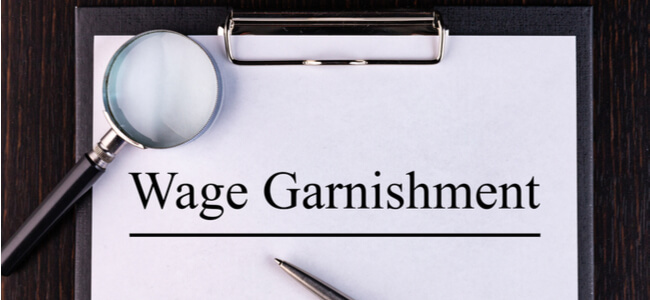Everything You Need To Know About The Internal Revenue System (IRS)

The Internal Revenue Service earned the nickname “tax man” due to its unfriendly image as a tax collector. Failing to pay your taxes can result in severe consequences, particularly if you ignore the notices you receive.
To prevent any tax troubles, follow these tips to avoid a tax audit and discover your options if you can’t pay your taxes on time.
What Is The Internal Revenue Service?
The Internal Revenue Service (IRS) is solely responsible for collecting and processing individual and corporate tax returns. According to statistics, the Internal Revenue Service processed more than 140.9 million income tax returns during the 2018 tax filing season. More than $3.3 trillion in tax revenue was collected, and $282 billion was issued in tax refunds.
It’s a massive agency with enormous responsibility and enforcement powers. For this reason, most consumers and businesses have a love-hate relationship with the Internal Revenue Service. No one wants to pay taxes, but everyone loves receiving a tax refund.
What To Do If You Are Audited
The one thing you don’t want from the Internal Revenue Service is an audit. The first thing to do if you’re audited is to remember that tax agents want to help you. They’re not motivated to cause you hardship. Most audits aren’t serious and can be easily remedied.
The tax authority conducts three types of audits:
- Mail Audit: A request to correct errors on your tax return or provide missing documents
- Office Audit: You’ll be asked to come to your local tax office to answer questions and provide more details regarding your income or deductions
- Field Audit: The agent will come to your home and examine your records to confirm that everything you reported on your return is accurate
Here’s what to do if you’re audited.
- The first contact from the IRS will come by mail. All contact information will be included in the letter, as well as the information needed
- You have 30 days to respond. Above all, don’t ignore or throw away this letter
- Gather all the documents the Internal Revenue Service has requested. Make sure you have originals and not copies of the documents
- During the visit, provide all the answers and documents the agent requests
How To Avoid An Audit
While the Internal Revenue Service does conduct random audits, your chances of this happening are slim. However, there are specific actions that can trigger an audit. Here are a few of the most common:
- Not reporting your side income: You might overlook your freelance income, but the IRS receives a copy of Form 1099
- Mathematical errors: Double and triple check your return before filing
- Claiming charitable donations that are out of line with your income: If your salary is only $30,000 per year and you claim $10,000 in charitable deductions, your return may be red-flagged
What Happens If You Don't Pay Your Taxes?
Remember, the one thing the Internal Revenue Service wants is to help you. If you owe taxes and can’t pay, file your tax return by the deadline. Pay as much as you can. You might want to consider taking out a personal loan from an alternative lender to cover your tax bill.
Doing nothing can result in the following.
Collection
- The IRS sends a letter detailing what you owe, plus penalties and interest, and demands payment in full. The unpaid balance is subject to interest that’s compounded daily
Notice Of Federal Tax Lien
- This is a legal claim against your current and future property
- Automatically applied ten days from the date the IRS sent the demand letter
- The lien can be filed in the public records, notifying your creditors of IRS debt
- The federal tax lien will be displayed on your credit report
Notice Of Levy
- The IRS can seize your bank accounts, wages, retirement income, and social security benefits
- The levy gives the tax authority power to seize your property, including cars and property, to satisfy the debt
Offsetting Your Refund
- Any future tax refunds can be seized and applied to your outstanding tax liability
What Is The Internal Revenue Service Doing To Help During COVID-19?
The COVID-19 pandemic has caused unprecedented economic hardship for millions of Americans. In response, the government initiated measures to ease the impact, including COVID-19 tax relief.
It’s not clear yet what changes will be made to the 2020 filing deadline. It’s important to check with your accountant or qualified tax preparer to beware of any changes that might benefit you.
Among the actions taken to help families dealing with COVID-19 are the following.
Economic Income Payments
- Issuance began in April
- If you weren’t required to file a federal return, you’ll need to file one to receive the stimulus payments
Tax-Favored IRA Withdrawals
- You’re eligible to withdraw up to $100,000 from your IRA tax-free
- You have three years to repay your IRA
- Both the withdrawal and repayment will be tax-free
- There are no limitations on how you use the money during the three years
On the flip side, watch out for the home office deduction. Your employer may require you to work from home, but claiming the deduction could result in an IRS audit.
The Bottom Line
The crucial thing to remember about the Internal Revenue Service is that although it has massive enforcement powers, it’s not eager to use them. Do everything within your power to pay your taxes on time.
If you can’t pay what you owe, take proactive action such as working out a payment plan or debt settlement. This preemptive effort will ultimately save your assets and credit score. Better yet, avoid raising red flags and you’re unlikely to ever see an auditor.



